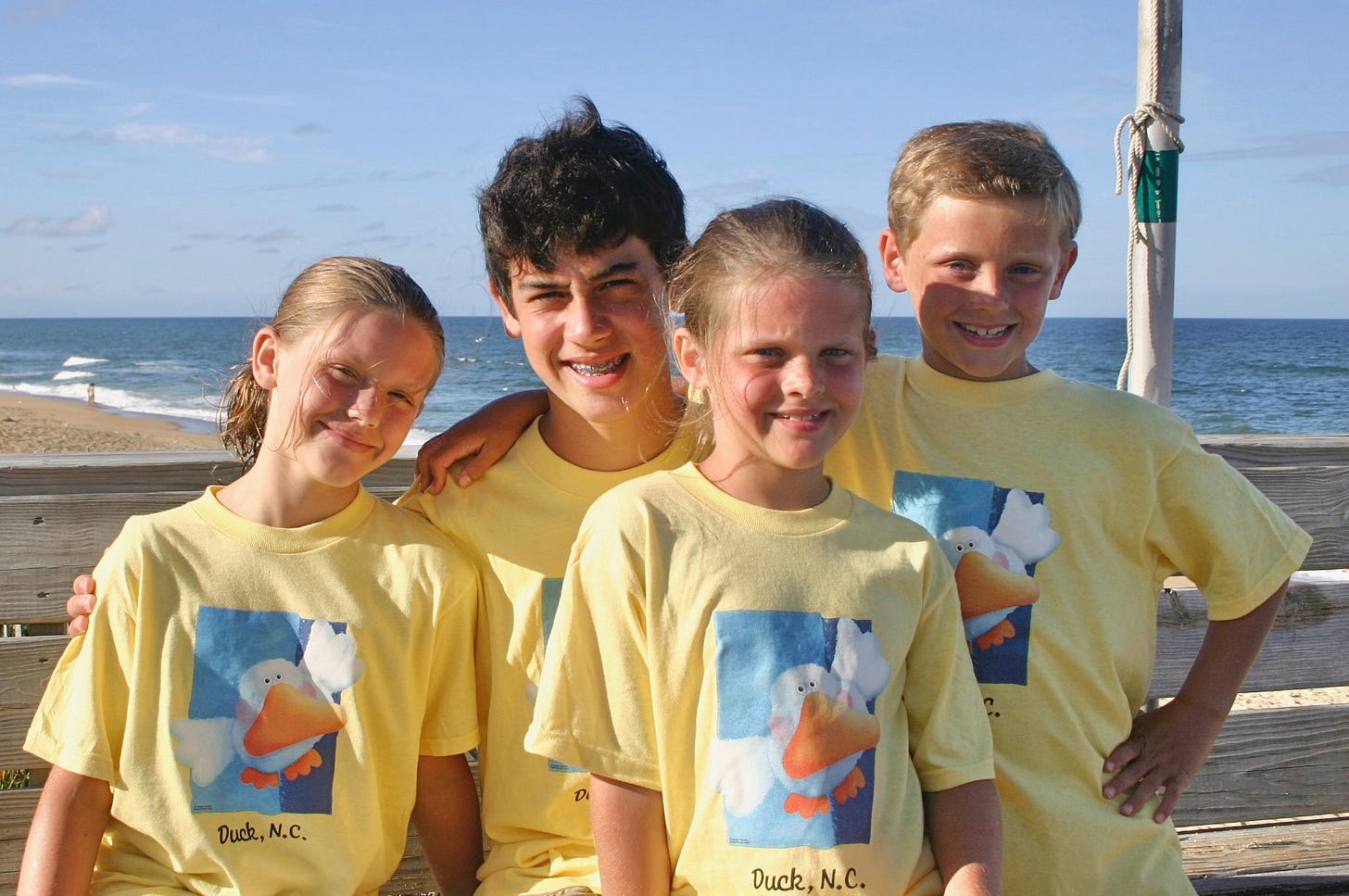I have always loved quoting our kids. When I heard a funny, naïve or unusually observant line from one of the children, I jotted it down or built an essay around it.
Nicholas, the oldest, was quick with the quip, as was Ben. They also were quick to clash and could be stubborn as hell. Kate’s sense of humor was out there at times, but she could be unusually observant and perceptive. Emma was quick to note when her memories differed from mine, so I made an extra special effort to quote her verbatim.
Last weekend, we had a brief grandchild summit. Nick and Connor brought their first born, Colin, to D.C. when they participated in the Cherry Blossom running event. On Saturday afternoon, we met them at the National Zoo with Marley, Kate, and Matthew.
It was a chilly, cloudy day, and naturally, it brought up memories of one of our most infamous family tales: The Zoo Story.
“The Zoo Story”
It started over the word “but” — or “butt,” depending on how you spell it.
When we first moved to the D.C. area in 2001, that was a big word around our house. For a brief period, we had to admonish our children and tell them not to use the word as it relates to the human anatomy. But (no pun intended) we soon found ourselves unable to use the word in a conjunctive sense without being told why it was a bad idea.
“Oooh, Daddy used the word,” they said in joyous glee (glee always came in unison). “Daddy, you’re not supposed to say that.”
“But,” I protested, “that wasn’t the bad butt. It was, uh, the good but.”
Thus was born the “good but” and the “bad butt,” a slight, subtle, but nonetheless important distinction for my children to draw at that nascent phase of their lives.
If nothing else, pre-school children are literal. And with our kids so close in age, literal came at us with the volume and intensity of a presidential press conference. Jill and I had to find some way to bring compound sentences back into our home speech.
“The good but,” I explained, “is when you say, ‘I want to do this, but I can’t right now.’ The bad butt is when you refer to someone’s bottom.”
That seemed to work for a time, until my youngest daughter and I went to the zoo. We were walking from site to site on a brisk January day. We saw the pandas, the giraffes, the elephants. And then we went to the beaver exhibit.
“Daddy, where’s the beaver?”
“He’s in his house.”
“What do you call his house?”
“Well, Emma,” I said, steeling myself. “It’s a dam.”
“Oh, Daddy…” she said with a level of sincerity only petite 4-year-olds can muster. “That’s a bad word.”
“No, no Emma. It’s not the bad ‘damn.’ It’s the good dam.”
“Oh,” she said, her wheels turning as onlookers snickered. “So you mean there’s a good but, and a bad butt, and a good dam, and a bad damn.”
“Yes.”
“Well, Daddy,” Emma said with a sense of confidence. “I don’t say the bad butt, and I don’t say the bad damn. I just say shit.”
I had no retort, just a sheepish reply.
“Well, Emma, there’s no such thing as good shit.”
And a man walking by said, “I beg to differ.”




You walked right into that one, Glenn! The good shit, indeed! Then there's the deep shit, too. I'm surprised your then-four year old didn't explain that to you.
I was expecting a charming story about young kids' amazement at all the animals. But nooooooo!
;-)